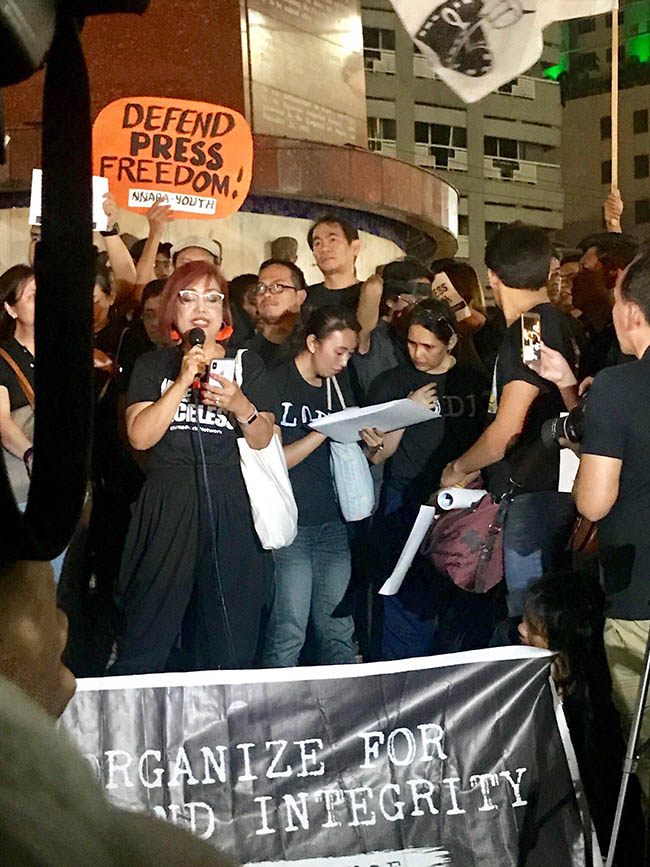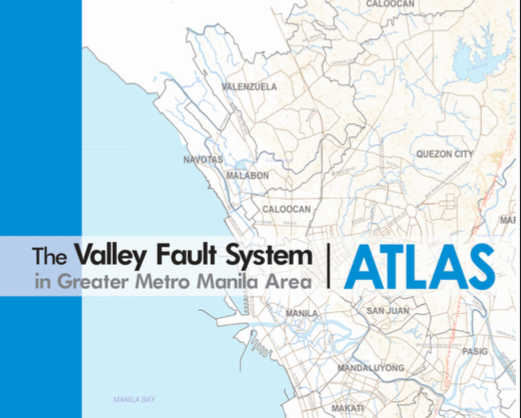Namfrel Letter to Chairman Brillantes Re Vote Buying
May 09, 2013
The Honorable
SIXTO S. BRILLANTES, JR.
Chairman
Commission on Elections
Subject: Vote buying reports received by Namfrel
Dear Chairman Brillantes,
We are respectfully submitting reports on the abovementioned subject which were received from our different chapters:
Albay: Sixty percent of voter respondents (15) who participated in a small survey answered that they have been offered money in exchange for their votes. All of those surveyed also have heard instances of vote buying.
In the municipality of Daraga, amounts range from P100 to P500 per voter and a sample ballot is usually stapled along with the money. A municipal kagawad seeking re-election was seen giving rice to voters. Money and/or goods are given out by those who are close to the candidate although some candidates do these themselves.
People themselves expect money to be given to them causing some parties to engage in a kind of “bidding”, and enticing voters with the higher amounts. Some willingly give their names to the barangay leaders, who also possess copies of the computerized voters list, to make sure that they will receive money. Candidates normally say that their money came from sponsors or from friends, although some suspect they could come from government funds.
A mayoral candidate is using a government building as headquarters
Vote buying is expected to be more pervasive one to two days before the voting, identifying this period as gapangan. The amounts the candidates are willing to part with is expected to increase as the election day draws nearer. Sample ballots are being distributed along with P100.
Agusan del Norte and Agusan del Sur: Vote buying is conducted through politicians and purok leaders.
Abra, Albay, Antique, Eastern Samar, Mountain Province, Ilocos Norte and Lanao del Norte: They expect vote buying to be more rampant as voting day draws closer.
Aurora: As high as P1,200.00 is being offered to vote for a set of candidates, which are members of a political dynasty. Incumbents are employing a large number of coordinators in the barangay; and jobs, reportedly intended to entice voters, financed by the municipal and provincial government, have been handed out.
Cagayan: Parties engaged in vote buying go house-to-house paying as much as P1,000 to P1,500 per person. Groceries and goods are given our during campaign rallies.
Eastern Samar, Rizal, Surigao del Sur and Negros Oriental: Goods are handed out to voters.
Guimaras: Vote buying is rampant in the municipalities. Either no one reports it or no one ever gets caught when these are reported to the police.
Ilocos Norte: Three candidates from a party went house-to-house and each of them gave P300 per voter. Persons who brought from a store all using P200 bills, when queried why they were all buying with P200 bills, replied that it was given to them by someone.
Monies are given along with a sample ballot. Recipients are asked to sign a receipt so that the candidate could trace if their coordinators indeed distributed the money. Sometimes coordinators force people to accept the money.
The highest amount given to voters by a mayoral candidate is P3,000. “Pataasan ng mabibigay na pera” is pervasive and influences voter behavior.
Ilocos Sur: A YouTube video (http://www.youtube.com/watch?v=-paD6WB4EGU) shows an alleged vote buying activity in Sta. Maria, Ilocos Sur. Barangay captains are usually tasked to distribute the money, although members of the Sangguniang Kabataan are also involved in these activities. From P1,000 upwards to P3,500.00 is offered for votes for a mayoral candidate.
Malabon: Free entrance to a swimming pool in Malabon is used to entice voters.
Manila: Candidates give away (trike) sidecars. Police would not reprimand sidecar operators that have tarpaulins and other election propaganda materials. Canned goods and rice are also handed out to voters.
Misamis Oriental: Vote buying is successful because of organized vote selling. Barangay officials carry out vote buying activities for the candidates. Employees of a government office were given a pack of rice at work and was told that the P500 will follow.
“Mobmen” extort money for candidates to use for their vote buying activities. The amount ranges from P50 to P500. Groceries and non-cash items are also distributed.
Negros Oriental: When money is given, it is usually under the guise of charity. Sometimes recipient voters are asked to fill out forms and promised financial aid.
Palawan: Candidates gave away farm equipment and then list the names of recipients. Sitio leaders are asked to list voters and used to track how they actually voted.
Pangasinan: Mayoral candidates in Dagupan own grocery stores. As such, vote buying in the area is known instead as “paubusan ng groceries”.
Romblon: Vote buying is a continuous activity and incumbents are more active. Some government employees were encouraged to donate money to candidates. There was a case when a mother walking along with her children was approached and given transport money.
Boat engines and water pipes that were supposed to be handed out to victims of the typhoon in 2008 are reportedly being distributed now. The incumbent mayor, who ran unopposed in 2010, is using these now in exchange for votes. For this election, the mayor is running against a strong candidate.
Siargao: Contesting parties have offered money to voters in exchange for their votes. Vote buying is a general knowledge; an old system that has thrived until now.
Tawi-Tawi: In Pandumas Island, money is given and distributed under the guise of charity work. In one municipality, it is the opposition who engages in vote buying activities. Voters are given P100 each. In some places candidates for councilor give money only to enough number of voters that could ensure them a seat. They also use the list of voters and go from house to house. Money is put inside an envelope, which bears the name of the candidate they are supposed to vote for.
In one conservative community, people do not accept the money if they know that they will not vote for the candidate. They do return the money, too, if they decide not to vote for a candidate.
Zamboanga del Sur: Contesting parties are reportedly engaged in vote buying.
Zamboanga Sibugay: Candidates engaged in buying votes use barangay officials, coordinators, leaders of their parties and their supporters to engage in this activity. They are required to recruit 10 voters and promise them from P1,500 to P2,000 if they vote for their prescribed set of candidates. The voter will be asked to sign on a piece of paper as proof, and the leader or coordinator of the candidate will be paid.
Our chairperson in Misamis Oriental aptly pointed out that “The concern in Manila about the reliability of the PCOS machines is not real to the ordinary voter. What is real is the monetary value of his vote or how much he can sell it for.”
Recommendations:
1. Encourage various organizations to prevent, confront or gather evidence against vote buying. The Multi-sectoral Council for Good Governance in Pangasinan, for example, has imposed a 10-day curfew among their members to lessen their exposure to vote buying.
2. For the Commission on Elections (Comelec) to act on anonymized evidence such as video footage of vote buying. Those who have videos fear of reprisal should they come out with them.
3. Increase airing of public ads that discourage vote buying. The Comelec is urged to seek the support of TV and radio networks to produce, allocate and air short segments.
As vote buying is really a general concern, perhaps no entity could singly address it. But we kindly request that Comelec to take the lead in carrying out the recommendations. As the Commission has taken great strides and success in curbing the illegal display of election propaganda, we believe that it, too, could create conditions where vote buying and selling could be discouraged.
While we are sincerely looking forward to your comments, we also would like to inform that our chapters expect us to share their reports to the wider public at the soonest possible time. This is our way of bringing more attention to issue and hopefully discourage it.
Sincerely yours,
(signed)
CORAZON S. DE LA PAZ-BERNARDO
National Chairperson
Related Posts
First Cabinet Meeting of 2011

Defend Press Freedom: Fight for truth, justice and freedom

Is your house sitting on top of the East Valley Fault or West Valley Fault line?
About The Author
Noemi Lardizabal-Dado
Noemi Lardizabal-Dado is a Content Strategist with over 16 years experience in blogging, content management, citizen advocacy and media literacy and over 26 years in web development. Otherwise known as @MomBlogger on social media, she believes in making a difference in the lives of her children by advocating social change for social good. She is a co-founder and a member of the editorial board of Blog Watch . She is a resource speaker on media literacy, social media , blogging, digital citizenship, good governance, transparency, parenting, women’s rights and wellness, and cyber safety. Her personal blogs such as aboutmyrecovery.com (parenting) , pinoyfoodblog.com (recipes), techiegadgets.com (gadgets) and benguetarabica.coffee keep her busy outside of Blog Watch. Disclosure: I am an advocate. I am NOT neutral. I will NOT give social media mileage to members of political clans, epal, a previous candidate for the same position and those I believe are a waste of taxpayers' money. I do not support or belong to any political party. I was part of accredited media covering the Office of the Vice President and Leni Robredo as she ran as a presidential aspirant in the 2022 National and local elections. On August 5, 2021, YouTube announced that I was selected as one of 50 Program participants of its Creator Program for Independent Journalists She was a Senior Consultant for ALL media engagements for the PCOO-led Committee on Media Affairs & Strategic Communications (CMASC) under the ASEAN 2017 National Organizing Council from January 4 -July 5, 2017. Having been an ASEAN advocate since 2011, she has written extensively about the benefits of the ASEAN community and as a region of opportunities on Blog Watch and aboutmyrecovery.com. Organization affiliation includes Consortium on Democracy and Disinformation Updated June 6, 2022
